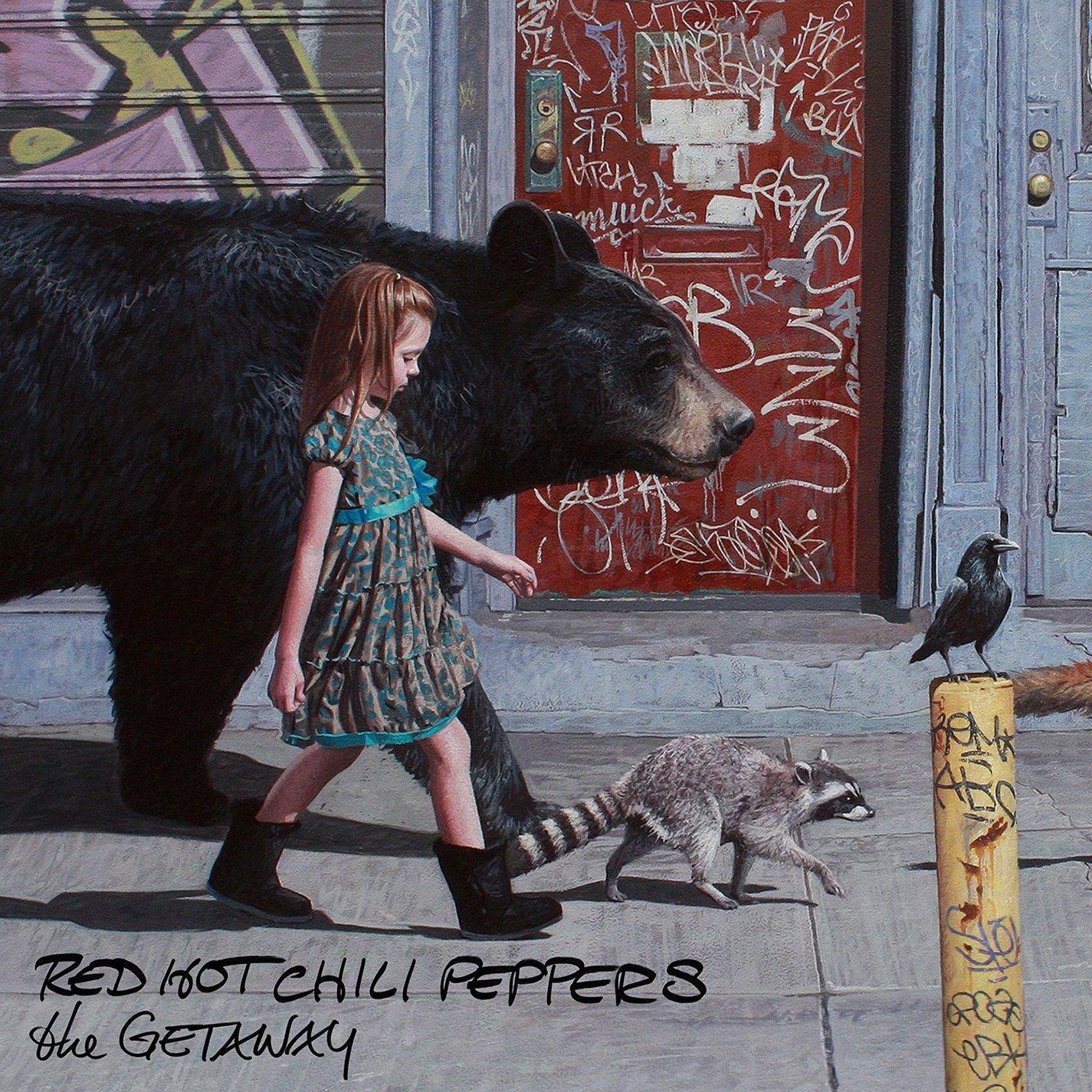Rope-pulling with drugs, addiction, accidents and grief over the past 30 years, the Red Hot Chili Peppers have had their fair share of struggle among the otherwise positive career highlights. Anthony Kiedis’ recent break-up and Flea’s arm injury are new additions to their list of tribulations. A reflection on this struggle, whether it’s current or way back in the past, is the theme of the Californians’ 11th album. However, rather than be completely sorrowful it’s viewed in a three-dimensional approach. It’s feared (as suggested by the album’s title) and predictably criticised, but also seen through a humorous (‘Dark Necessities’ and the human vs cyborg comparison ‘Go Robot’), logical and mature angle. With Danger Mouse also on board to help solve one of the band’s possible issues – are Red Hot Chili Peppers still relevant and exciting? – it makes for a less cliché and captivating look on a universal concept.
Various songs point to Anthony Kiedis’ romantic struggles. “Too young to be my wife” (‘Dreams of a Samurai’) and “half my age” (‘The Longest Wave’) are lyrics that relate to the age-gap between him and his former girlfriends. Kiedis further commentates on the difficulties of maintaining this wild dating lifestyle due to this reputation being documented by the media on the title track ‘The Getaway’: “Another lonely superstar to get away inside your car.” Other songs narrate trips to places away from their beloved California, such as ‘We Turn Red’ and ‘Detroit,’ suggesting that a quick escape from the drama is on Kiedis’ mind. At its most tragic, ‘Feasting on The Flowers’ time-travels back to the worst moments of Kiedis’ narcotics addiction in the late 1980’s and also documents the drug-caused death of Hillel Slovak. It follows in the footsteps of other memorials, such as ‘Knock Me Down‘ (Mother’s Milk), ‘My Lovely Man’ (Blood Sugar Sex Magik) and ‘Otherside’ (Californication).
Yet Kiedis realizes that he has a different role to play as he approaches his mid-fifties. Combining the past and the future, ‘The Hunter’ looks at the aging of his father Blackie Dammett and flashes back to Kiedis’ irresponsible upbringing (Damett introduced the RHC vocalist to drugs). “Even though you’re crazy, you’ll never be a bother” is quite a potent message. Kiedis theoretically uses the song as a promise to his own child Everly Bear that he won’t repeat his father’s mistakes.
Musically, there’s a well-measured balance between new ideas and the band’s best recognisable qualities. The latter being Flea’s memorable riffs, Chad smith’s powerful drumming and the introductory suspense created before the wildness kicks in. ‘Dark Necessities’ and ‘The Longest Wave’ are comparable to ‘By The Way’ and ‘Can’t Stop’ in that manner. This is accompanied by beatboxing high hats, clapping beats, violin, trumpet, female backing harmonies (Anna Waronker from That Dog features on the title track) and swirling synthesizer phasing on the funky new wave ‘Go Robot’ that’s similar to Broken Bells.
The Getaway is diverse in its presentation of a range of moods, from slow ballads that demonstrate a surprisingly soothing characteristic in Kiedis’s vocals to explosive yet expected head banging energy. Even the pace and time signatures intriguingly alter drastically within tracks (‘This Tisconderoga’). Even Elton John cameos to further complement RHC’s evolutionary love for piano (which delightfully borders on ragtime theatre on ‘Sick Love‘) and the RHC’s increasingly erudite approach to music, this is an energising and motivational album about struggle in time when the world needs it.




